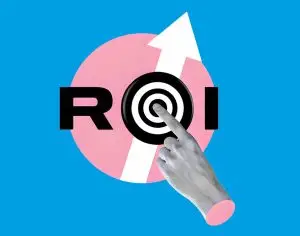According to Nigel Toplis, banks are not the only funding option available for would-be franchisees.
Buying a franchise is a serious business and often requires a significant financial commitment. This often means taking out a loan, if the purchaser does not have the necessary funds available within their own savings. And few do.
Franchisees need to pay fees to the franchisor, as well as fund other parts of the fledgling business, such as stock, employees’ salaries, rent etc. That said, raising finance as a prospective franchisee is still much easier than raising investment to start an independent business from scratch.
Most established franchisors will have already negotiated funding arrangements with major banks. The majority of these banks probably have their own dedicated franchise department to deal with such matters. A key benefit of franchising is that banks will look at you more favourably, as a borrower, compared with someone starting up their own independent business.
For an independent start-up, banks will generally lend up to 50% of the total cost. However, for an established and successful franchise, they will usually lend 70% of the total cost. Terms and rates vary between banks although, in my experience, they are all keen to remain competitive in this modern age.
But you can’t just walk into a bank and walk out with a loan. There is a process to follow and the bank will want to see your commitment to the business, as well as evidence of your own assets.
All lenders will want you to complete a detailed and comprehensive Business Plan. You will have to demonstrate that you have considered all aspects of the business and that you understand the commitment needed to make it a success. They will also want to know your own salary and profit expectations.
Unlike an independent business owner seeking a loan, prospective franchisees can expect the franchisor to offer detailed guidance on this vital topic. Franchisors should assist you in the construction of your Business Plan. Many will have their own skeleton Business Plan to show you.
You should speak to at least two banks and, once again, the franchisor should be able to provide you with contact details. It is then up to you to arrange a meeting with one of their franchise specialists.
As well as making contact with banks, I would advise you to check out a start-up loan which is a UK Government-backed initiative. This is aimed at encouraging new business owners into the economy. At the time of writing, start-up loans charge a fixed interest rate of 6% per year, and you can repay this loan over a period of one to five years.
There’s no application fee or early repayment fee and, unlike a business loan, this is an unsecured personal loan. But you will still need to pass a credit check. You’ll receive free support and guidance when writing a business plan, and successful applicants enjoy 12 months of free mentoring. You can check this out via www.gov.uk.
Whether you use a start-up loan or a bank, you will need to prepare a professional business plan. You must also present yourself in a professional manner. Calculate how much money you will require to get the entire project off the ground. My recommendation is to add three to six months of working capital to the overall cost of buying the franchise.
This will increase the total amount of money that needs paying back but will ensure you have the necessary funds to get the business through its early growing pains.
Although banks are keen to lend to the franchising community, the franchisee will also be called upon to invest some of their own money. So, it’s important that you have some liquid funds available and that you don’t overstretch yourself. Franchise businesses have a good track record of success.
However, no-one can forecast for certain the future performance of any business and if you don’t have a safety net, then you can easily find yourself in difficulty. Be honest with the franchisor about the source of the money. There is no value in telling the franchisor that you have ‘X’ amount of cash when, in fact, you have far less.
Tell them how much you are borrowing, and what the interest charges are. If the franchisor isn’t aware of the full facts, they won’t be in a position to give you the proper advice. But if you carry out due diligence, and work truthfully with your franchisor, raising capital should be a comparatively stress-free experience.

































